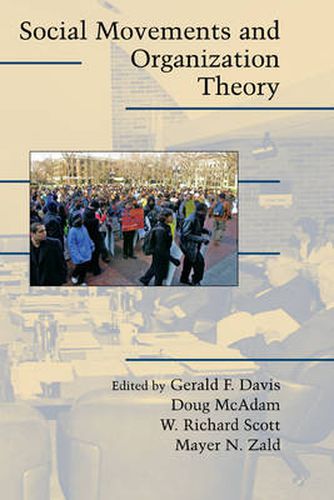Readings Newsletter
Become a Readings Member to make your shopping experience even easier.
Sign in or sign up for free!
You’re not far away from qualifying for FREE standard shipping within Australia
You’ve qualified for FREE standard shipping within Australia
The cart is loading…






Although the fields of organization theory and social movement theory have long been viewed as belonging to different worlds, recent events have intervened, reminding us that organizations are becoming more movement-like - more volatile and politicized - while movements are more likely to borrow strategies from organizations. Organization theory and social movement theory are two of the most vibrant areas within the social sciences. This collection of original essays and studies both calls for a closer connection between these fields and demonstrates the value of this interchange. Three introductory, programmatic essays by leading scholars in the two fields are followed by eight empirical studies that directly illustrate the benefits of this type of cross-pollination. The studies variously examine the processes by which movements become organized and the role of movement processes within and among organizations. The topics covered range from globalization and transnational social movement organizations to community recycling programs.
$9.00 standard shipping within Australia
FREE standard shipping within Australia for orders over $100.00
Express & International shipping calculated at checkout
Although the fields of organization theory and social movement theory have long been viewed as belonging to different worlds, recent events have intervened, reminding us that organizations are becoming more movement-like - more volatile and politicized - while movements are more likely to borrow strategies from organizations. Organization theory and social movement theory are two of the most vibrant areas within the social sciences. This collection of original essays and studies both calls for a closer connection between these fields and demonstrates the value of this interchange. Three introductory, programmatic essays by leading scholars in the two fields are followed by eight empirical studies that directly illustrate the benefits of this type of cross-pollination. The studies variously examine the processes by which movements become organized and the role of movement processes within and among organizations. The topics covered range from globalization and transnational social movement organizations to community recycling programs.